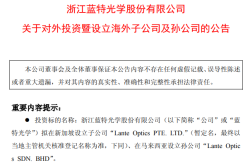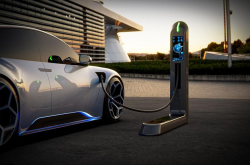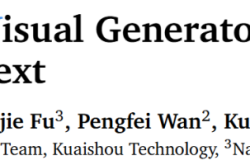Behind Double 11: China's Consumption Hasn't Entered the Same River Twice
![]() 11/15 2024
11/15 2024
![]() 619
619

"Whether an individual rises or falls doesn't always depend on whether they are doing push-ups or high jumps, but rather whether they have stepped into an ascending elevator."
Author | Lanhole Business Yu Weilin
The ancient Greek philosopher Heraclitus once said, "You cannot step into the same river twice." So, can different countries fall into the same development vortex at different historical periods?
Since the second half of 2022, China's economy has shown a weakening trend after a brief rebound, with phenomena such as residents' excess savings and sluggish corporate investment persisting. The academic community has also debated whether China will fall into a so-called "balance sheet recession" similar to Japan's "lost three decades."
"Balance sheet recession" was proposed by Japanese-American economist Richard Koo to explain Japan's economic recession in the 1990s. Due to the bursting of the real estate and stock market bubbles, asset prices plummeted, leading to imbalances in balance sheets. Companies shifted from pursuing profits to minimizing liabilities, and residents shifted their income to debt repayment rather than consumption.
Reason does not become clear without debate, and seemingly complex problems often yield answers over time.
Since October this year, the macroeconomic environment has changed, and fiscal stimulus has formed clear expectations. Public information shows that real estate transaction volumes in first-tier cities have shown a significant growth trend. Among them, Beijing's second-hand housing online signing volume reached its highest level in 19 months, and Shanghai's second-hand housing transaction volume increased by more than 50% month-on-month. According to data from the National Bureau of Statistics, China's total retail sales of consumer goods increased by 3.3% year-on-year in the first three quarters of this year.
From a micro perspective, the recently concluded Double 11 can better reflect the changes.
As the main battlefield for brand sales, Tmall's sales during Double 11 hit a new high, with 589 brands exceeding 100 million in transactions, a year-on-year increase of 46.5%. Notably, Taobao's core users, 88VIP members, continue to expand. As of midnight on November 11, the number of 88VIP members placing orders increased by more than 50% year-on-year, indicating that the main consumer group is breaking through the original consumption ceiling.
The "2024 Double 11 Review and Observation" report released by Analysys points out that the total transaction volume of major domestic e-commerce platforms increased by 11.4%, and the daily active user count of each platform set new records for the "Double 11" sales promotion. Consumer purchasing activity during this year's "Double 11" was significantly higher than the same period last year.
Japan's "balance sheet recession" is characterized by low consumer desire, corporate complacency, and a lack of effective fiscal stimulus from the government. However, from both macro and micro perspectives, China has not entered the same river twice.
Moreover, with new changes in foreign trade conditions, a new round of fiscal stimulus will further expand domestic demand, and brand consumption is poised for positive growth. The momentum of consumption growth has not waned, but consumer mindsets are quietly changing.
It seems like the pursuit of low prices, but in reality, it's the pursuit of cost-effectiveness; it seems like the pursuit of alternatives, but in reality, it's the demand for better quality and service. Behind these changes lies a new opportunity for Chinese brands, and mastering new rules and narrative logic is far more important than blind effort.
Trends and Preferences: What Are Consumers Willing to Pay For?
"Japan has the world's largest deposits, but this hot money does not flow into the market," said management scientist Kenichi Ohmae, who described Japan in his works as a "low-desire society" beginning in the 1990s.
Concepts still frequently mentioned today, such as "minimalist living," "circular economy," and "decluttering," originated in Japan at that time. Consumers were pessimistic about the future, leading to an overall state of non-consumption and low desire.
Many people believe this is the current state of Chinese consumer groups, but in reality, it is merely peddling anxiety.
According to a GF Securities report, Japan's commercial sales compound annual growth rate was -1.5% between 1990 and 2000, falling to a low of -5% in 2002.
In contrast, according to data from the National Bureau of Statistics, China's national consumer spending increased by 6.7% year-on-year in 2024, and total retail sales of consumer goods increased by 3.7% year-on-year, with online retail sales increasing by 9.8% year-on-year.
China's mainstream consumer group still has a strong desire to purchase. Starting this year, the most discussed consumer topic on social platforms has been: "Those seemingly useless coffees, clothes, and small items may actually be necessities for maintaining our mental health."
The so-called following in Japan's footsteps seems more like a speculative rumor. Based on data and facts, what are China's true consumption trends and consumer preferences in the next decade?
The most noticeable change in mindset is becoming more rational and pragmatic. On the surface, it appears to be consumption downgrading, but at a deeper level, it is the pursuit of the intrinsic value of goods.
What will savvy consumers buy during Double 11? Netizen "Hu Die" feels like she's made a sure bet, scooping up more than ten pieces of gold jewelry from multiple e-commerce platforms during the sales promotion.
"I bought a ring from the Chow Tai Fook flagship store. The original price was over 3,000 yuan, but the store offered a direct 10% discount. I also used a gold coupon to deduct 180 yuan, Taobao coins to offset 100 yuan, membership center points to redeem a 50 yuan Double 11 exclusive coupon, and bank card shopping funds to deduct 80 yuan..."
With gold prices soaring, young people are eagerly discussing how to buy gold at more favorable prices during Double 11. As a hard currency, no one doubts whether gold has excessive premiums, and so-called extreme low prices are not more attractive in the face of true value.
Similarly, if consumers recognize the value of a brand, they won't find the discount algorithms during sales promotions overly cumbersome.
"I'm exhausted! This is such a great deal!" Netizen Dou Yi exclaimed after paying the final payment in Li Jiaqi's live stream. "I got a Gofans 1399 yuan down jacket for 1155 yuan, getting a medium-length style at the price of a short one; I spent only 867 yuan on an Elizabeth Arden product priced at 1190 yuan, and saved at least 80 yuan on L'Occitane."
This year's Double 11 was the main stage for brand merchants. As a luxury down jacket brand with a main price range of 1500 to 3000 yuan, Gofans' sales exceeded 100 million yuan on Tmall Live alone, easily topping the "100 million yuan club" for super down jackets.
Under a more rational consumer mindset overall, mainstream consumers have shown distinct stratification and personalization characteristics, and they are more willing to pay for their hobbies, emotions, and quality of life.
According to Tmall data, the high-consumption group in sports and outdoor categories has grown rapidly over the past year, with the number of users spending more than 50,000 yuan annually increasing by 35% year-on-year. The number of transactions for high-price range softshell jackets priced at 1000-1500 yuan and above increased by more than 100% year-on-year.
Similarly, the pet category, born out of love, also witnessed growth. During Double 11, nine brands, including Xianlang and McFoody, exceeded 100 million yuan in transactions, with eight of them making the list for the first time, and transactions for 1340 pet brands doubled year-on-year.
As people's consumption purposes shift from external display to internal reflection, considering security and service quality, consumers have become "long-termists."
Offline, the number of Sam's Club members in China surged from 1 million in 2017 to 5.5 million in 2024, with a renewal rate as high as 80%, earning it the title of the largest "countercurrent" in China's retail industry;
While online, Taobao's 88VIP membership maintained double-digit growth in 2024, exceeding 42 million in June, making it the largest paid membership group in domestic e-commerce.
According to a survey by China Business News, more than 82% of respondents in first-tier and new first-tier cities have purchased 88VIP, with a higher proportion of people earning more than 300,000 yuan annually. During this year's Double 11, 90% of the transactions for high-end brands like La Mer came from 88VIP members.
Exclusive discounts, special consumption vouchers, cross-platform experiences, and dedicated customer service are factors that 88VIP members generally recognize and remain loyal to. This huge group of 42 million people not only drove Taobao's impressive performance during this Double 11 but also holds the key to the next cycle of brand business growth.
Which Will Survive the Cycle: Brands or White-Label Products?
Consumers are evolving, and "cost-effectiveness" is taking up an increasing proportion. There are constant questions about whether the future belongs to the era of white-label products. In this era, is there still value in operating a brand?
A proven fact is that even in the three decades after Japan's bubble economy burst, there were still affordable brands like Daiso, Uniqlo, and Don Quijote that focused on cost-effectiveness. Consumption trends change with the economic situation, but brands never sleep.
Take Japan's "2-yen shop" Daiso as an example. Its predecessor was "Yano Store," founded in 1972. Although called a store, it was actually a mobile stall run by the founder, Yano, who drove a small truck through the streets.
The transition from a mobile stall to a retail leader with 5,300 stores globally occurred in 1991 when Yano began branded operations. The first offline store of "Daiso" opened and expanded rapidly at an average rate of 10 stores per month in Japan, which had a low material desire at the time.
A brand is the best endorsement. Nowadays, more than 99% of Daiso's products are self-branded. Although it's called a 100-yen store, items priced at 200 yen and above still sell well. The logic behind this is that consumers recognize the brand value. Without standardized branded operations, neither Daiso nor Uniqlo could survive the cycle.
Looking back at China's consumer market today, on the one hand, consumer demand remains vigorous; on the other hand, white-label products have become a force that cannot be ignored. Will white-label products eventually replace brands? Industry insiders generally believe that the two will coexist and complement each other in the long term.
"The situation from the 1990s, where the market was full of white-label products and independent brands struggled to survive, will not recur. The market will eventually reach an equilibrium, which may also follow the 80-20 rule, meaning that 80% of products on the market will be independent brands, while around 20% will be retailer-owned brands or white-label products," said Deng Min, Global Partner of Bain & Company and Chair of the Consumer Products Practice in Greater China, in an exclusive interview with China Business News.
Amid the clear trend of consumption stratification, Deng Min believes that "the more premium the brand, the less impact it will suffer. Whether it's due to quality, differentiation, or brand accumulation, premium brands are difficult to replace."
During this year's Double 11 pre-sale period, there was a significant increase in high-value items on Tmall. High-end luxury beauty brands grew by nearly 30% year-on-year compared to the same period last year's Double 11. New beauty products priced above 500 yuan increased by more than 200% year-on-year, new men's care products above 500 yuan increased by more than 300%, and new essential oil aromatherapy products above 500 yuan increased by over 1000%.
Even for relatively affordable items, more people choose brands over white-label products due to safety and quality considerations. Some people are willing to spend lavishly on their hobbies, while others won't compromise on their diets, and still, others must give their children the best protection.
This presents opportunities for niche vertical tracks and emerging brands to break through.
FUFUSOUL, which specializes in scented toys and was founded in 2023, has entered a niche market but made a strong debut, surpassing last year's first-day sales volume within 30 minutes of Tmall Double 11 this year, with classic products selling over 1,000 units in 30 minutes;
In the maternity and childcare category, Babycare stood out from the red ocean. On the first day of Tmall Double 11 pre-sales on October 14, its sales in the first two hours exceeded last year's full pre-sale day, making it the top pre-sale performer in the maternity and childcare industry;
The snack brand Xiaoluhalu achieved an overall GMV of over 30 million yuan, a year-on-year increase of 50%, ranking first in the meat snack category on Tmall for the third consecutive year and maintaining the top spot for chicken snack GMV for five consecutive years.
White-label products with extreme low prices do flow business, while brands that also strive to reduce premiums and provide service and quality assurance pursue long-term value. The crucial difference lies in whether they have a solid consumer mindset.
Almost all white-label products strive to evolve into brands, and all brands strive to become famous brands. This is not a short-term phenomenon but an objective law.
The Key to China's Brands in the Next Decade
We don't agree that China has entered a "balance sheet recession," but that doesn't mean China's brand operators can rest easy. Beyond broader trends, supply and demand in niche industries are not always balanced, and excess capacity and shifts in consumer preferences can bring unexpected pain.
Beginning in the second decade of this century, household appliances became mass-produced products that anyone could manufacture, forcing Japanese home appliance enterprises that led the economy to transform.
Among them, Hitachi integrated the production of social infrastructure with IT and embarked on the path of "Industry 4.0"; Toshiba focused its business on nuclear power and semiconductors; and Panasonic, which continued to focus on the home appliance market, introduced a combination of products and services, such as the monthly rental service "Foodable," which lowered the purchase threshold and allowed consumers to try before buying.
But when the tide changes, choice becomes far more important than effort. In fact, among Japan's three major white goods brands, only Panasonic has truly succeeded in its transformation. Toshiba was delisted and sold its white goods and TV businesses to Midea and Hisense, respectively. Sharp became a subsidiary of Hon Hai Group in 2016 due to its unsuccessful liquid crystal panel business.
For current Chinese consumer brands, what's changing is not the growth trend but the consumers themselves. Leveraging the power of platforms to take the lead in insighting trends and making the right choices is undoubtedly wiser.
On the one hand, as consumers' pursuit of "cost, efficiency, and experience" continues to escalate, choosing the right platform to grow together can at least help them stay on top of the narrative and not fall behind.
Taking the "billion subsidy" feature that has become standard on various platforms since last year as an example, it remained a key growth engine for brands during this year's Double 11. Public data shows that as of 24:00 on November 11, the order volume of Taobao's billion subsidy exceeded 150 million, with the number of orders placed increasing by 50% year-on-year.
Among them, the transaction volumes in industries such as home appliances, audio-visual and digital products, beauty products, personal care, apparel, sports and outdoors, and home decoration more than doubled. Despite being considered the quietest Double 11, countless brand operators are "making a fortune in silence."
Behind this is the platform's support. During this year's Double 11, Taobao invested an additional 30 billion yuan in consumption vouchers and red envelopes on top of direct discounts and instant discounts, the highest amount ever.
The platform's business environment construction means that merchants can timely adjust their strategies amidst changing trends, calculate costs, and obtain more profits.
Full refunds are another standard feature of e-commerce platforms today, but a one-size-fits-all policy is simplistic. While platforms prioritize consumers and capture traffic dividends, considering the survival space of brands is another form of long-termism.
Starting this year, Taobao loosened its "full refund" policy and introduced "Refund Guarantee," allowing merchants to reduce costs and increase efficiency during Double 11, enhancing business certainty.
Regarding the full refund policy, Taobao opened an appeal and reconsideration portal for merchants and provided compensation schemes. Relevant Taobao personnel revealed that the cumulative compensation amount on the platform has exceeded 300 million yuan, and the processing completion rate for merchant appeals within 7 days exceeds 95%. The Refund Guarantee service, launched in September, has reduced merchants' return costs by at least 10%, with a maximum cost reduction of up to 30%.",
2024 is hailed as a watershed year for live streaming e-commerce. With the frequent failures of internet celebrities and the elimination of inferior products, superior products have emerged. As consumers return to rationality, e-commerce live streaming has also entered an era of quality.
In response, Taobao's comprehensive strategy is "professional anchors + branded goods + platform guarantees", which has boosted live streaming sales against the trend. As of 24:00 on November 11, 119 Taobao live streaming rooms have achieved sales exceeding 100 million yuan, setting a new record. Among them, 49 live streaming rooms with sales exceeding 100 million yuan have seen year-on-year growth rates exceeding 100%. Additionally, this year's Double 11 saw substantial year-on-year growth in both the total transaction amount and the number of purchasing users on Taobao live streaming.
Taking Adidas as an example, through the supply tilt towards core best-sellers and a full commitment to Li Jiaqi's live streaming room, on the first day of pre-sales for Double 11, it not only became the first best-seller in the sports and outdoor industry to exceed 100 million yuan in sales but also topped the sales chart across all categories in "Li Jiaqi's Live Streaming Room". Within four hours of pre-sales, it ranked first in Tmall live streaming.
Adidas's Global CEO Kasper Rorsted stated during the third-quarter earnings call that he would not be surprised if Adidas's sales in China increased by 10% or more in the fourth quarter.
Famous American investor Jim Rogers once described trends as being like a train. You can either choose to stand on the tracks or jump on board. Currently, the media prefers the metaphor of the "elevator theory," suggesting that whether an individual rises or falls sometimes doesn't depend on whether they are doing push-ups or high jumps but rather whether they are in an ascending elevator.
Adapting to cycles, embracing trends, and choosing the right platform for mutual success are the keys to brand success in the next decade.








